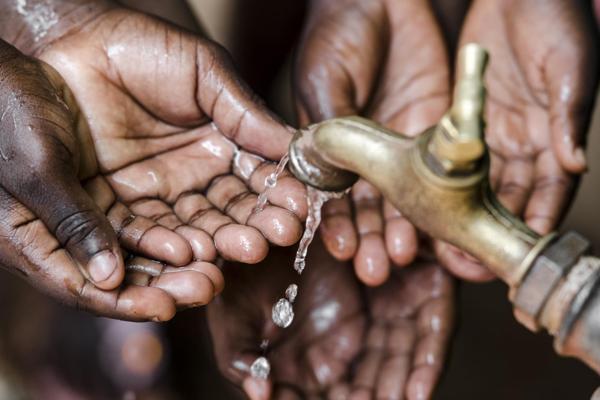Inequalities are a roadblock to human development: Op-ed
Claudio Tomasi


Recent climate-related extreme events like floods, wildfires, unseasonably warm winter, hit the poorest and most marginalized communities the hardest.
Unequal participation to the economic progress and social advancements hit the most vulnerable, while impacting the lifestyles of middle classes.
People are showing their discontent and frustration regarding persistent and structural inequalities in various forms. Often silently, but increasingly with huge demonstrations all over the world.
The events of 2019 are here to remind us of the intertwined challenges that will come to define the twenty-first century: that of the climate crisis, and impact of technological revolutions like artificial intelligence and automation, on people.
The environment, rising fuel costs and a lack of jobs are just some of the issues driving recent protests around the world. People are increasingly taking to the streets because they feel that economic and political structures are rigged against them.
These grievances support the core analysis of 2019 UNDP Human Development Report, which presents decision makers with the choice to overturn deep-rooted systemic drivers of inequalities. Whilst inequalities are deep-rooted, they are not inevitable.
In doing so, there is the opportunity to simultaneously eliminate extreme deprivation while equipping everyone to live with dignity, manage the fallout of our planet heating up and benefit from modern breakthroughs in artificial intelligence and robotics.
The odds are clearly stacked, inequality has many faces, along gender, ethnic, linguistic, class and sexual orientation lines – to name but a few.
Women represent the largest systematically disadvantaged group worldwide and are facing a backlash to their empowerment.
The new UN report details how the proportion of people biased against at least one form of gender equality has grown over the decade 2005 to 2014 in half of the 77 countries assessed, now rising to 90 percent of men and 86 percent of women. Additionally, the more power is at stake, the higher the resistance, with a woman facing more intense opposition in running for office than voting.
These statistics speak to just one of many pervasive and pernicious inequalities that exist in the world and are driving frustration and resentment. But with the scale and scope of the challenges mapped out, how do we respond?
There is no silver bullet that can magically solve all problems. Based on fundamental findings and principles, countries need to convene all relevant stakeholders to find best local ways to tackle inequalities, considering their own national contexts. And these solutions should address inequalities beyond income and beyond averages, as conventional indicators like Gini coefficient is not enough to explain the situation of today.
Explaining patterns of the past is obviously very important, but we should also be able to look beyond today to better understand the effects of the new challenges like climate change and the impact of technological advancements on the most vulnerable.
Even a relatively low national income is no excuse for inaction. Countries with fewer resources at their disposal might take inspiration from Ethiopia, which has rolled out pre-primary education across the country, securing a double win through facilitating early childhood development and freeing up mothers’ time, so they can join the workforce if they choose.
A wide range of countries with a broad assortment of health systems and incomes –ranging from Brazil, France, Indonesia, Japan, Peru, Thailand, Turkey and Vietnam– have all worked to either create or expand their universal health coverage programs.
Countries will not be able to beat inequalities on their own, however. As with the climate crisis, collective action is an essential part of the solution.
For example, international collaboration will be required to tackle tax evasion and prevent a race to the bottom on corporate taxes and environmental standards. Moreover, new standards need to be developed to make sure that new generations of digital firms make markets more efficient, satisfy labor regulations and pay their fair share of taxes.
On gender, policies should seek to change social norms and eliminate discrimination through education, awareness and changing incentives. And to ensure that everyone benefits from the latest technologies, UNDP hopes to see more measures like free broadband and electronic medical records to micro-target those left furthest behind.
Returning to consider the sense of disenchantment and dispossession underpinning many of the year’s protests, leaders must redouble their efforts to remove the alienating, insurmountable and unfair obstacles their citizens face in achieving the life they want for themselves. Governments must drive radical reforms to enable their citizens to thrive rather than just survive in an era of climate crisis and technological transformation. If they don’t, the current growing unrest might set off a decade of turmoil and uncertainty.
*Claudio Tomasi is the Resident Representative of UNDP in Turkey. The Human Development Report is published annually since 1990 by the UNDP. The report also includes various indices reflecting the human development. Turkey’s Human Development Index value for 2018 is 0.806, which put the country in the very high human development category for the first time ever. Details on the report and Turkey’s human development performance this year can be accessed at tr.undp.org
